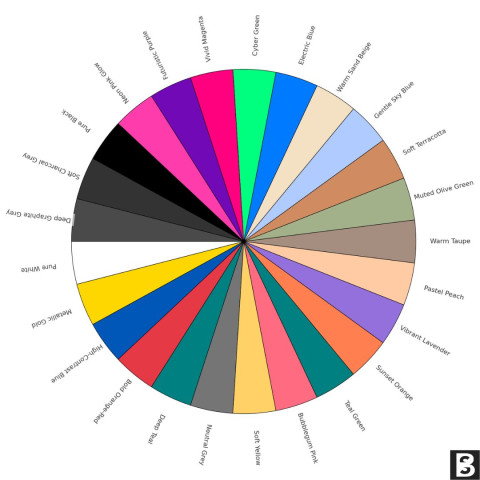Shopify alternatives A comprehensive guide 2025
In the realm of e-commerce, Shopify has been a dominant player for years, renowned for its robust and flexible platform that caters to businesses ranging from small start-ups to large enterprises.
However, with the ever-evolving digital landscape, particularly in 2025, UK businesses are finding themselves amidst a plethora of alternatives that are increasingly relevant to their specific needs.
As market demands change and technological innovations reshape e-commerce, it's critical to explore Shopify and its top UK alternatives to make an informed choice tailored to your business.

- Over 2.7 billion people are shopping online in 2025—around 1 in 3 people globally.
- Mobile commerce (m-commerce) now accounts for over 73% of all e-commerce sales worldwide.
- The average consumer spends 6 hours per week shopping online - more than watching traditional TV.
1. Shopify
Shopify continues to be a powerful force in the e-commerce world, renowned for its ability to serve a range of businesses, from growing start-ups to established enterprises. Its reputation is built on reliability, ease of use,
a. Ease of Use
Shopify’s streamlined setup process and intuitive dashboard make it accessible for users who may not have technical expertise in web development. This ease of use is complemented by a plethora of tutorials and resources that guide users through every step of building their online store.
b. Customisable Themes
With hundreds of templates available, businesses can create visually appealing online storefronts. These themes are often mobile-responsive, ensuring that the user experience is consistent across all devices. This is increasingly important as mobile commerce continues to rise.
c. Scalability
Shopify supports entrepreneurs with various business plans that offer different levels of functionality. As a business grows, it can easily upgrade to more advanced offerings without having to migrate to a new platform, making it ideal for rapidly expanding businesses.
d. Global Reach with Local Adaptation
The platform supports selling products in multiple currencies and languages, essential for UK businesses targeting international markets. Additionally, Shopify integrates easily with locally preferred payment gateways, ensuring that businesses can accommodate diverse consumer preferences.
e. Strong Community and Support
Shopify’s vibrant community and extensive documentation provide users with access to a wealth of knowledge. Whether through forums, local meet-ups, or online resources, users can find solutions to virtually any problem they encounter.
DID YOU KNOW
Shopify was founded in 2006 by Tobias Lütke, Daniel Weinand, and Scott Lake in Ottawa, Canada. It originated when Lütke tried to create an online store for snowboarding equipment called Snowdevil.
2. WooCommerce
A natural extension for WordPress users, WooCommerce is favoured for its flexibility and low entry barriers.
a. Extensive Plugins and Extensions
WooCommerce boasts an array of plugins that allow businesses to add functionalities like advanced sales reporting, product customisations, and marketing tools at any time.
b. Community Support
Its sizeable community means abundant resources, including forums, tutorials, and expert advice, are readily available.
c. Seamless Content Integration
Its tight integration with WordPress makes it an ideal choice for content-driven businesses that also maintain a blog or other content-rich pages.
3. Bluepark
Bluepark has steadily gained favour among UK entrepreneurs who value functionality and service over bells and whistles. It includes hosting, SSL, support, and feature updates under one roof, which simplifies budgeting and operations.
a. UK relevance
- Built in the UK with local customer support.
- Strong emphasis on GDPR, UK payments, and domestic logistics.
DID YOU KNOW
The global online shopping market is expected to reach around $6.56 trillion in 2025
4. BigCommerce
BigCommerce stands out for its robust built-in features and flexibility. It is often chosen by mid-market firms looking for robust ecommerce features and performance.
a. Advanced SEO Capabilities
Designed with search optimisation in mind, BigCommerce helps businesses to enhance visibility and attract more traffic. Its features make it easier to optimise product pages and site content for search engines.
b. Ease of Integration
The platform supports connectivity with various UK-based and international services, providing a versatile ecosystem that streamlines business operations.
c. Multi-Channel Selling
Businesses can manage sales across multiple platforms such as Facebook, Instagram, and Amazon, all from a single interface, optimising their reach and efficiency.
5. Wix e-commerce
Wix has significantly improved its e-commerce capability in the past two years. The ADI (Artificial Design Intelligence) tools make setup lightning-fast, and drag-and-drop editing suits those who want visual freedom without coding.
a. UK relevance
- Works well for side-hustlers or craft-based sellers
- Offers integrations with UK inventory and POS systems.
6. Magento (Adobe commerce)
Magento is ideal for larger enterprises needing substantial customisation. It is favoured for larger businesses, with around 250,000 merchants using the platform worldwide.
a. Scalability and Customisation
Its open-source nature empowers developers to create customised solutions tailored to the specific operational needs of larger organisations.
b. Rich Ecosystem of Features
Adobe Commerce provides extensive capabilities like advanced analytics, seamless third-party integrations, and powerful marketing tools.
c. AI-Driven Insights
Leveraging AI, Adobe Commerce supports data-driven decision-making, helping businesses to optimise operations and improve customer experiences.
7. Squarespace Commerce
Celebrated for its design sophistication, Squarespace Commerce excels in creating visually appealing online stores
a. Sleek and Professional Templates
Especially beneficial for fashion and art-related businesses, Squarespace offers sleek, visually appealing templates.
b. Simplified Store Management
With integrated inventory management and sales tracking, it eliminates the need for complex third-party solutions.
c. Direct Publishing
Squarespace combines blogging with e-commerce, allowing businesses to engage audiences through high-quality content directly from the same platform.
Shopify Software Comparison Table
| Name | Average rating (out of 5) | Best for |
|---|---|---|
| Shopify | 4.5 | Comprehensive e-commerce solution with extensive app ecosystem and ease of use for beginners and small to medium-sized businesses. |
| WooCommerce | 4.4 | Best for WordPress users who want flexibility, customisability, and control over their online store. Ideal for businesses that are comfortable managing technical aspects. |
| BluePark | 4.3 | Small UK-based retailers seeking all-in-one features and service. |
| BigCommerce | 4.2 | Suitable for rapidly growing or large businesses that need robust features and scalability without transaction fees. Great for multi-channel selling. |
| Wix e-commerce | 4.2 | User-friendly platform for small to medium-sized stores needing easy setup and a drag-and-drop website builder. |
| Adobe Commerce | 4.0 | Highly customisable and powerful platform tailored for large enterprises requiring advanced functionalities and control. |
| Squarespace | 4.0 | Ideal for designers and creatives seeking visually appealing site templates and straightforward e-commerce features. |
Conclusion
These ratings and descriptions are general and depend on reviews and user experiences up to this point. For the most up-to-date and personalised recommendations, it would be advisable to look at recent reviews and consider specific business needs.
Choosing the right e-commerce platform in 2025 involves careful consideration of specific business needs, industry trends, and potential for growth. While Shopify provides a versatile and scalable solution, UK businesses should also consider alternatives like BigCommerce, WooCommerce, Squarespace Commerce, Adobe Commerce and ShopWired.
Each platform presents unique strengths that cater to different aspects of e-commerce, from design and customisation to global reach and local compliance. As the e-commerce landscape evolves, so too must the strategies and tools businesses use to engage customers and drive success.
If e-commerce is a major factor of your business and an off the shelf solution just doesn't do what you want it to do, contact us now to discuss our Bespoke e-commerce software. https://bespokeuk.com/contact

eCommerce Trends 2025
The e-commerce landscape has been evolving at a rapid pace over the past fe...
5 min read

6 Top Alternatives to Xero-2025
In the dynamic landscape of business accounting, UK enterprises are increas...
6 min read

12 Design Alternatives for Canva 2025
Canva has become the design platform of choice for many—from freelancers in...
6 min read


